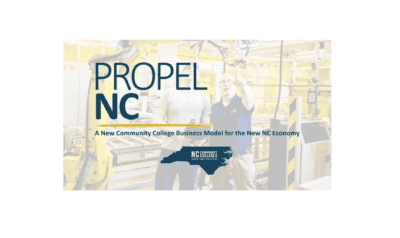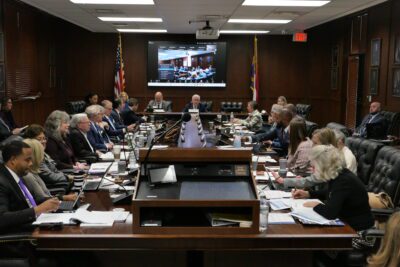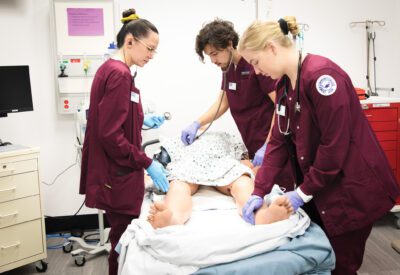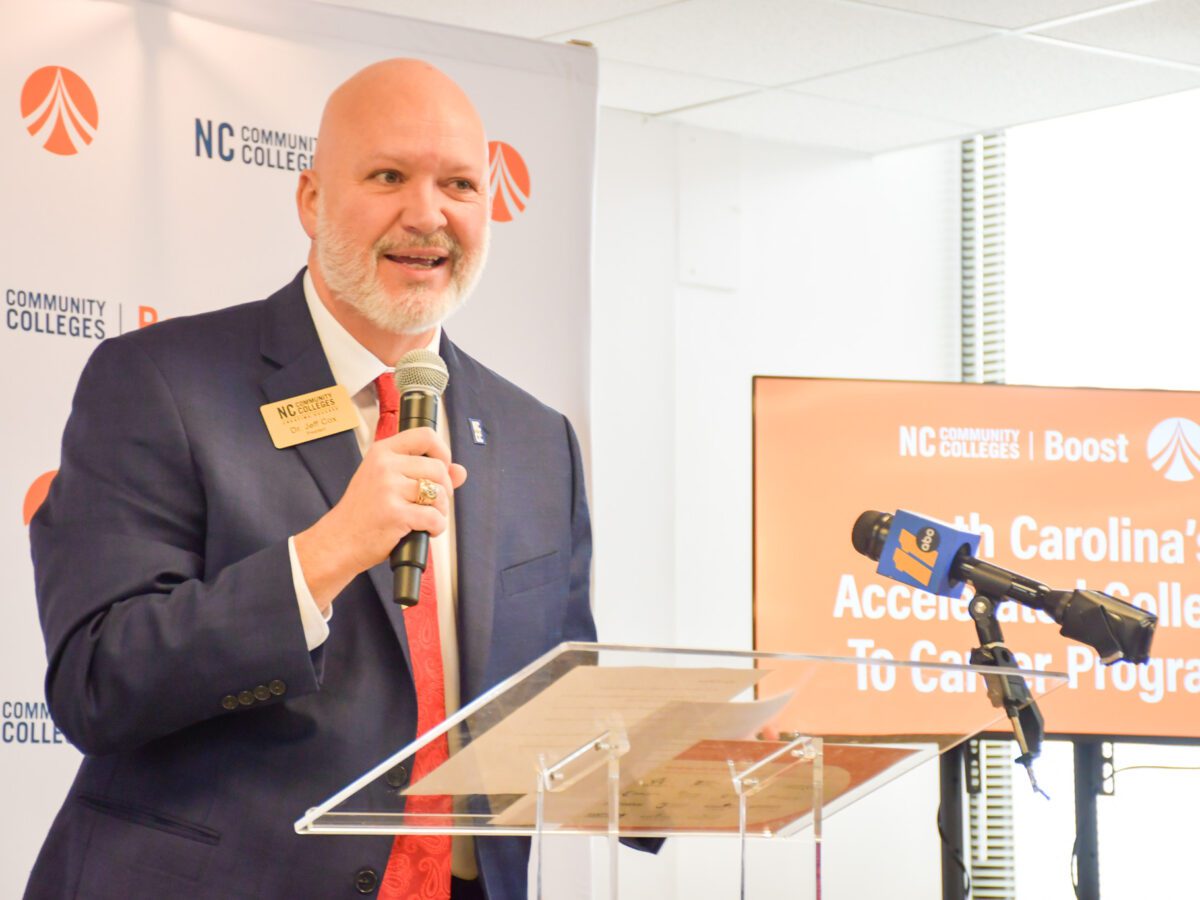
|
|
The North Carolina Community College System (NCCCS) announced on Wednesday the launch of NC Community Colleges Boost – a new program designed to increase completion rates and move students into high-wage, high-demand careers.
The program’s launch is supported by a $35.6 million grant from Arnold Ventures, a philanthropic organization that supports research and evidenced-based solutions to address some of the country’s most pressing issues. This is the largest private grant the system has received.
“This extraordinary gift aligns perfectly with our mission to make education work for everyone regardless of background, age, or circumstances,” said Tom Looney, chair of the State Board of Community Colleges.
Though Boost is new to North Carolina, the program model is not.
In 2007, the City University of New York (CUNY) created Accelerated Study in Associate Programs (ASAP). CUNY ASAP has received national recognition for its comprehensive support model and ability to mitigate barriers, helping students graduate and earn higher wages.
NCCCS President Dr. Jeff Cox called CUNY ASAP the gold standard when it comes to increasing completion in higher education.
The goal of Boost is to accelerate student advancement through college and place them into high-wage, in-demand careers. The program model is a combination of “timely and relevant supports, dedicated advising for students, and incentives to accelerate their education,” according to a system press release.
While Boost will be modeled after CUNY ASAP, North Carolina’s community colleges will tailor its implementation to the state’s unique culture and needs.
One way they’ll do that is by aligning Boost with North Carolina’s workforce development goals outlined in their system’s new business model, Propel NC.
The program will target several high-growth fields, including biotechnology, engineering and advanced manufacturing, health care, and information technology.
Boost will also support the participation of small rural colleges through regional collaboration.
The Boost model has evidenced-based success, including increased graduation rates and higher earnings for their graduates, and has been implemented across institutions in places as different as New York City and West Virginia.
“North Carolina is leading the way with the next step — the first ever to launch this program at community colleges statewide at significant scale,” said Kirby Smith, executive vice president of strategy and programs at Arnold Ventures. “North Carolina has demonstrated again and again that it is deeply committed to leading the way in higher education with evidence-based policy and practice.”
Boost will be rolled out over the next two years with technical assistance from the CUNY ASAP National Replication Collaborative. The program will serve students across the state, starting with eight community colleges in 2025 and seven more in 2026.
The 15 colleges implementing Boost are: Alamance Community College, Bladen Community College, Caldwell Community College & Technical Institute, Cape Fear Community College, Central Carolina Community College, Central Piedmont Community College, Cleveland Community College, Forsyth Technical Community College, Isothermal Community College, Johnston Community College, McDowell Technical Community College, Robeson Community College, Sampson Community College, Wake Technical Community College, and Western Piedmont Community College.
Johnston Community College President Dr. Vern Lindquist spoke during the announcement, representing the 15 community colleges.
Lindquist said that time is the enemy for at-risk community college students, and supports are needed to help accelerate students’ abilities to get through their programs. Boost will provide wraparound services that students need, ranging from financial support to additional advising to child care access.
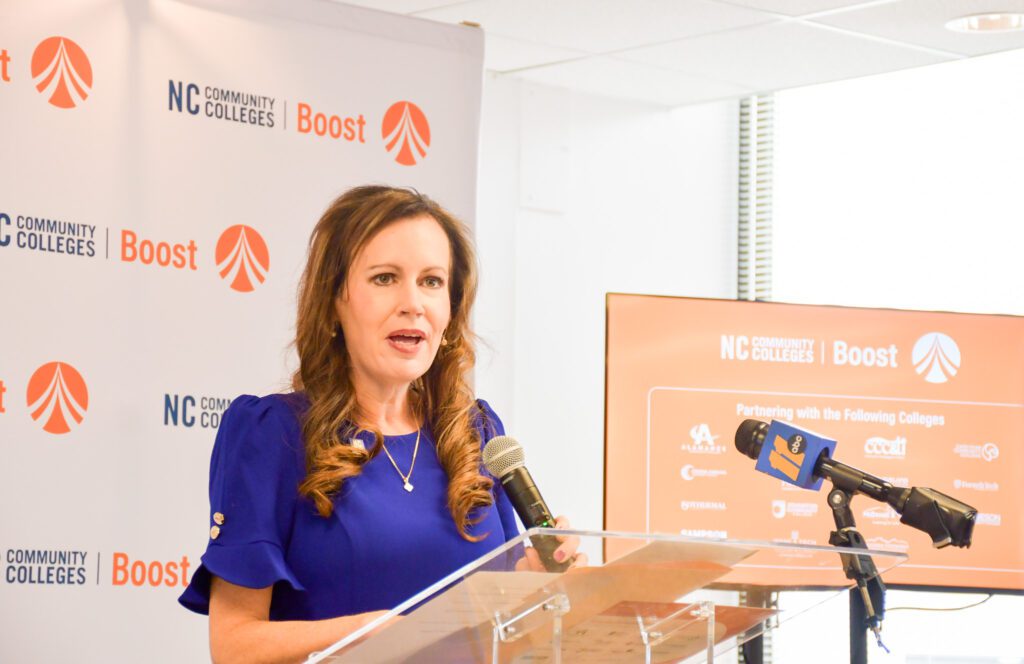
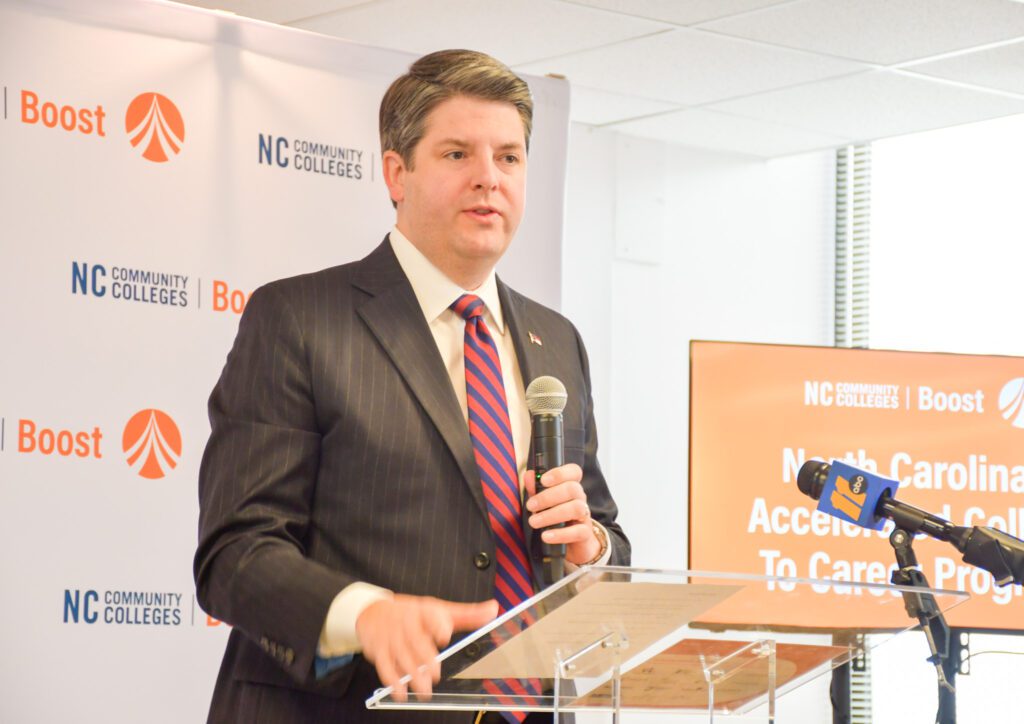
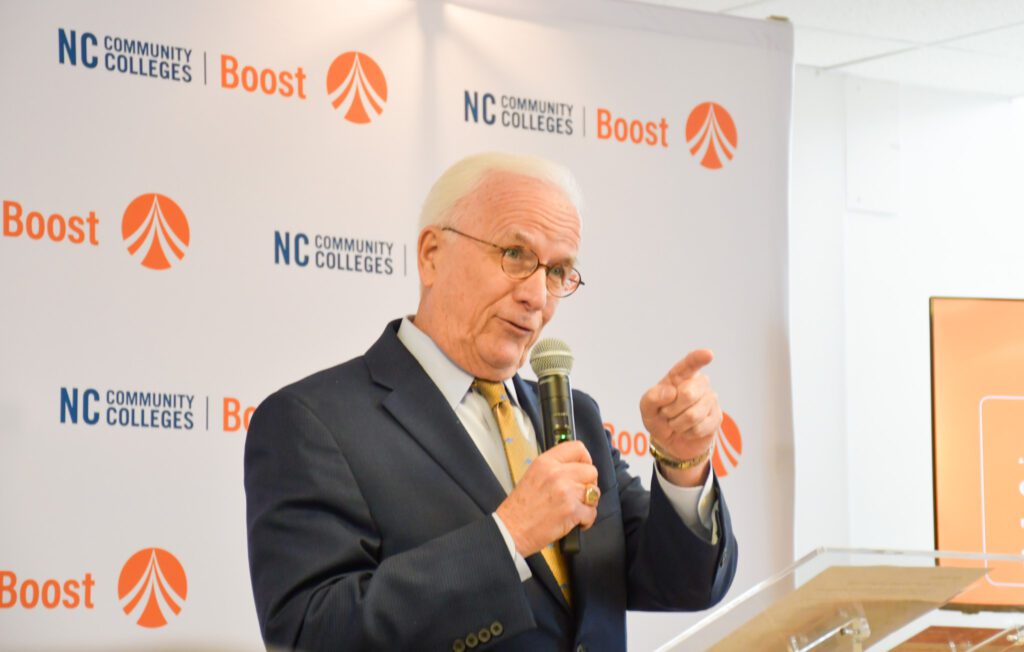
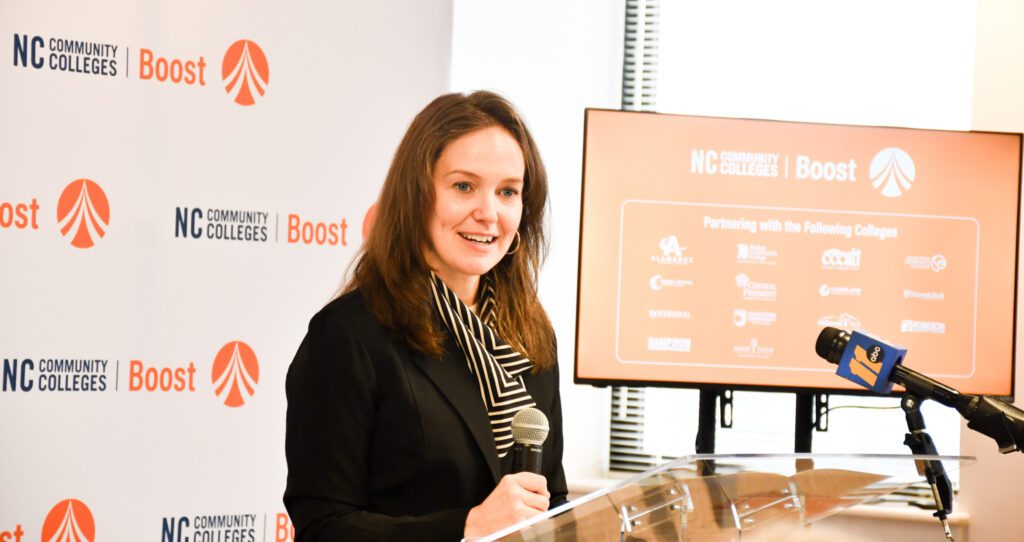
“When community college students complete their degree or enhance their credentials, they don’t just earn a diploma. Rather, they unlock doors to great opportunities,” Rep. Tricia Ann Cotham, R-Mecklenburg, said.
Cotham went on to say that North Carolina’s community colleges are the economic engines of the state and that the implementation of Boost will play a critical role for workforce development and for student success and economic mobility.
Sen. Brad Overcash, R – Gaston, also attended the announcement of Boost.
Overcash said the General Assembly cannot support economic growth without a solid workforce talent pipeline, noting that Boost will help provide this.
The system will track the program’s performance and report results on a regular basis. All policymakers and interested parties will know the program’s return on investment, Cox said.
Cox ended the announcement by reminding the audience that while the growth and prosperity of North Carolina is tremendous, the state still has pockets of poverty.
“If you’re born poor, there’s a two out of three chance you’re going to stay poor,” Cox said.
But Cox believes Boost has the opportunity to change that.
With Boost, Cox said that it’s about enrolling students, getting them across the finish line with a degree or certificate, while at the same time aligning programs with the labor market needs in the state.
“This is an exciting day for North Carolina businesses, companies looking to relocate to a state dedicated to world-class workforce development, and for the residents of North Carolina,” Cox said. “We expect the North Carolina Community College System Boost program to make a significant, positive contribution to our state’s economic future.”
The plan is to scale Boost statewide after demonstrated pilot success.
You can view this one-pager for more information about Boost.



